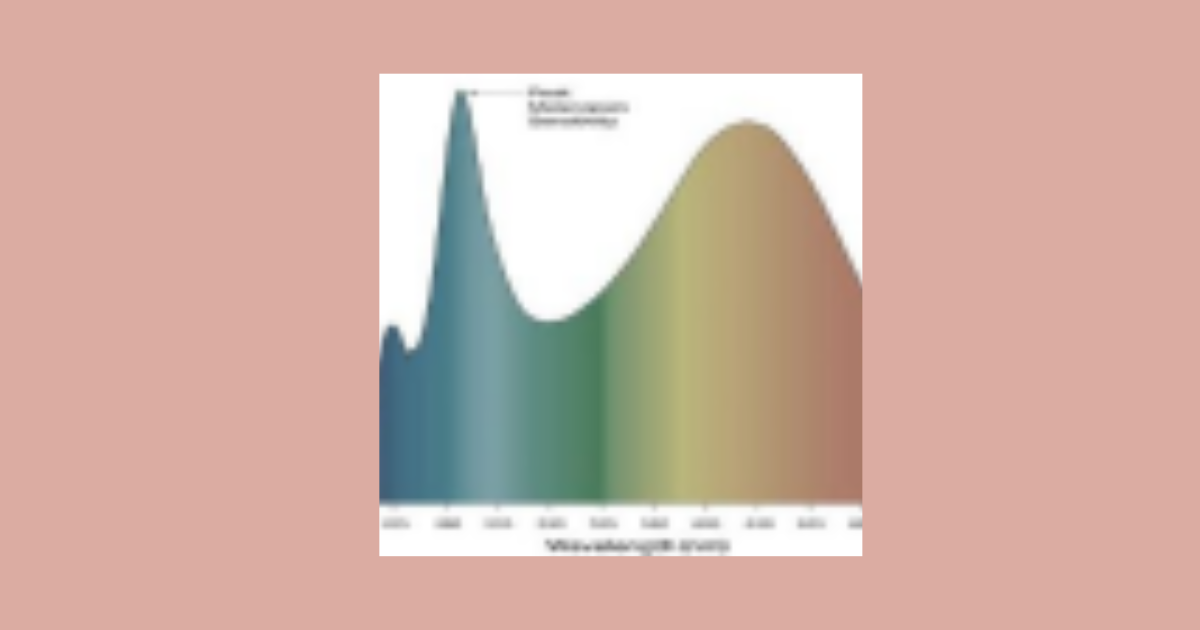International Journal of Science and Research (IJSR)
ISSN: 2319-7064
SJIF (2022): 7.942
Cognitive Performance, Zeitgeber Entrainment Acknowledgement, Mitochondrial Activity, Work Hour Melanopic-Circadian Alignment and Improvement in Social Behaviour: (Includes) A Prospective Study of up to 19 Office Goers: Salvation Series
An insight to the facts, research, design and specification of the office luminaires for the circadian alignment, healthy LQI- Lighting quality index
Abstract: The need for Healthy (Forming the parameters of Light Quality Index-LQI, Physiological Evidence based office lighting), with smart controls. It all began with the inquisitiveness that how light as a zeitgeber influences the molecular mechanism are sensing the environment for the time cues? How circadian is disrupted or aligned, what is the connection between immune system and light, why there are chances of being prone to some types of cancer-with relation to light, how retina gets damaged, effects of white LED exposure on retinal pigment epithelium, relationship of metabolism and muscular atrophy with respect to light and many of these inquisitiveness.
1. Introduction

The idea that there can be an “unambiguous technique” for human-bio favourable lighting like tenable white without considering the bioblue transition to the dim grey appearanceand in the absence of other non-visible and visible parameters is totally unrealistic, because of the non synchronisation of the indoor skylight dynamics in concurrence with the outdoor skylight dynamics, tremendous variability between individuals based on their age, genetics, environmental factors, individual physiology, eating habits, and wake up or the sleep timings and our behavioural aspects. The harmony of the glands is accomplished by constantly synchronizing our body’s atoms, glands, genes, molecules, cells hormones in alignment of time cues- the LIGHT.
2. How the project started?
When DPA moved its Mumbai office to a new location they enlisted healthy lighting Design, their in-house group of illuminating experts, to solve the projects lighting challenges. The new space in the Ahmedabad’s based Office Tower is a conventional mix of open-area workstations, private offices and conference rooms with low 11’ 5” ceilings throughout.
The project’s lighting objectives were established “to provide wellness, healthy, interactive, an ergonomic and visually luminance balanced workspace,” means, “That evenly illuminating the ceilings, walls and work surfaces, while CS & EML levels the space and lighting should help the occupants with the better cognitive functions, minimizing glare and unwanted reflections.” Considering the limitations of traditional recessed & suspended fixtures, these objectives were easier said than done. The challenge was also to create aesthetically bright environments
Facts:
Until now we were concerned with defined lux levels, tuneable white light, UGR, CRI and the w/soft. Now there’s a product that offers controlled CS, CR ratio, EML, retino hypothalamic activation to trigger pineal & pituitary glands with the designed SPD for special bio-red & bio-blue technology in line with irradiance value to help out physiology of the body also helping our 3-neurotransmitters, cognitive functions brightness, uniform distribution and exceptional energy performance.
Volume 11 Issue 4, April 2022
www.ijsr.net
Licensed Under Creative Commons Attribution CC BY
Paper ID: SR22416151122 DOI: 10.21275/SR22416151122 807

International Journal of Science and Research (IJSR)
ISSN: 2319-7064
SJIF (2022): 7.942
3. Proposed Standards for Light Quality
Being tenacious and ascertaining a healthier lighting space always requires a process of trading off some aesthetical and volumetric aspects of the space for healthier future gains. However, this has been a very thick proposition from an architectural and interior point of view, especially in the office and the residential segments.
We need to strategies w.r.t. legislative to be proposed and implemented regarding LQI-INDOOR LIGHT QUALITY INDEX., as there is an exponential rise in severe neuro and retinal disorders as well as the related illnesses. This is due to the inappropriate forms and sources of light that are contributing negatively to our health are:
- Retinal damage
- Brain fatigue
- Stress
- Migraine
- Insomnia
- EFD
- Cancer
- Obesity
- Age related Macular degeneration
- Skin diseases
3.1 How does the LQI work?
The standard of LQI can be broadly defined as the combination of visible and non-visible parameters (Wavelength, frequency, radiance, and irradiance, and photons, visual and non-visual acuity) for our health and wellbeing. The higher the LQI value, the greater the levels of these healthy parameters inducing the physiological and psychological benefits to the inhabitants For example, an LQI value of 80 (out of 100) represents good healthy lighting with respect to circadian alignment, ATP production, serotonin levels, melatonin balance and visual acuity as a rejuvenated space.
The LQI can be categorised into three different zones. Each category corresponds to a different level of health and wellbeing concern. Each category also has a specific features of the light as a product, components, is deliverables in terms of efficacy, lumens, flicker ratio, THD, Gamut values, CCT ratio, CRI, α-opic ratio EML, CS etc along with the presence of radiance and irradiance values, non-visible wavelength and its corresponding ranges subjected to the physiological. The purpose of the LQI is to help people know how the Light quality impacts their health and wellbeing. It must NOT contribute to
- Retinal fatigue
- Brain fatigue
- Migraine
values and limits..
It must HAVE mentioned outcomes
- Rejuvenation
- Circadian alignment and not the drive
- Improvements in the cognitive skills
- Activation of Solitrol to generate Vitamin D
- Better mitochondrial balance while having the presence of NIR*/FIR*
3.2 Why is LQI important?

The business of lighting has grown Multi-folds over the past one decade and so do the technical understanding on the same embraced with the skills with respect to creativity, but the fundamentals of physiology in relation to light is still to reach those numbers. LQI is much more than just furnishing an appropriate quantity of light like lux levels, efficacies, R values, CRI, CCT, Macadam step etc…
There are many psychological as well as physiological factors that has to be covered under of lighting quality index (LQI). Lighting quality cannot be expressed simply in terms of photometric measures nor can there be a self explicit ways applicable formula for good quality lighting, but surely the lighting quality as expected and desired must be HEALTHY and not just smart or cost effective.
Volume 11 Issue 4, April 2022
www.ijsr.net
Licensed Under Creative Commons Attribution CC BY
Paper ID: SR22416151122 DOI: 10.21275/SR22416151122 808
International Journal of Science and Research (IJSR)
ISSN: 2319-7064
SJIF (2022): 7.942
3.3 Objectives of Light Quality Index (LQI)
The DNA of our lighting industry changed with the arrival of LEDs. Thus our parameters w.r.t. the biology has to be restructured. The LQI primarily works on the contribution of lighting parameters (visible and non-visible) on human (the occupants) physiology and the psychology. Depending upon the indoor spaces and the layouts with respect to the topography the LQI parameters can be reset. For instance, LQI parameters for South Pole for an indoor or outdoor application will differ from the inhabitants of North Pole. The study of the sets of individuals is very crucial as the physiology of sets of human beings will differ and thus there cannot be one single yardstick to govern LQI. To make it easier to understand, the LQI can have mentioned pathways to be formed:
- Affects of different spectrums on human health
- By an appropriate use of lighting controls, tuneable white light blending with biored* and bioblue* lights to induce replica of the nonvisible and visible parameters of light {dawn, full sunny day & dusk timelines.}
- Combination of appropriate forms of LEDs.
- Avoiding the direct view of light sources, incorporating a lighting design to reduce the number of lights in a pragmatic manner.
- Allowing the maximum parameters of Sunlight through the glass enveloped buildings
Need for an appropriate design for office lighting: SALVATION* series CAMA – Girish Bhardwaj, Tashi Aggarwal
It’s the need for the hour to re think and adapt lighting product design and the lighting consultancy which must contribute towards the Circular economy and biodiversity, health and wellbeing parameters rather lux or illuminance, cost benefits or CAPEX / OPEX point of views.
The design from SALVATION* seriesCAMA (Circadian Alignment &Mitochondrial Algorithm) based delivers both visual and non-visual benefits with respect to physiology, luminance / illuminance, visual acuity for the occupants. We have adopted the methodology towards the optimization for efficacy, LOR, TM-30 regulations, CRI, EML, CS and need for boosting mitochondrial activities to boost our immune systems as well as our cell regeneration while maintain the melatonin/ cortisol ratios.
Algorithms are based on the astronomical clocks for resetting of the desired SPDs and colour corrections with the an appropriate form of BIO BLUE* and Bio RED*
Introduction to the Salvation series:
Apart from the visual perception or the acuity, it is very well established that light is the governor of our hormones and it is very essential to maintain the harmony amongst the glands, hormones and the neurotransmitters. For example, our biological clock is regulated by the circadian and diurnal rhythms through the intrinsically photosensitive retinal ganglion cells (ipRGCs) that transmit light stimuli to the suprachiasmatic nucleus (SCN) which governs our pituitary and pineal gland with negative transactional feedback loop systems..
Similarly, molecules which are chromophores’, absorbs the wavelengths emitted by the light source. There is an optical tissue window which varies from 600 nm to 1400 nm ( infrared spectrum). The chroma force in tissues which absorbs the light energy. These chroma force are found in MITOCHONDRIA. MITOCHONDRIA, in these we have specific molecule known as Cytochrome C oxidase, which is responsible to produce energy within MITOCHONDRIA. This means Adenosine Tri Phosphate (ATP), which is the end product of energy correlation and is the fuel our cells need for transporting irons for metabolism.
As compared to the traditional lights in the name of HCVL/HCL/Circadian drive the phenomenon of these office lighting is different and advanced in terms of technology and health benefits as we are focussing more on the circadian alignment and physiological benefits* from the longer wavelengths. SPECTRAL OPTIMIZATION FOR CAMA was utmost essential. The Luminous efficacy w.r.t. lumens, irradiance and joules / seconds has been given the priority along with the EML/CS/TM-30-18 and CRI parameters.
Salvation is a modular, adaptive & intelligent lighting tool designed for the biological wellbeing of the humans while meeting the visual needs of the occupants of any space. This luminaire is designed using the proprietary technology (patent pending) using specific wavelengths of light which are scientifically proven to aid to photo-:bio-stimulation and trigging cortisol, together with high quality LEDS which can be tuned to the required colour temperature.
The luminaire houses intelligent program embedded to tune to the circadian requirements of the occupants of a spaces along with triggering the photo stimulus at calculated intervals throughout the day. High quality electronics & control ensures to meet stringent flicker and EMF emission norms which further makes the luminaire safe & secure for daily usage .
Light Source: Medical Grade LEDs of proprietary wavelengths, Tenable 2700-5500K
System Power: 70 Watts excluding standby power CRI / GAI : >90 / > 78.9 (typical)
Mounting: Ceiling Recessed for Grid / Gypsum / PoP type ceiling structure
Dimension: L: 600 X W:600 X H:125mm
Control Gear: Electronic In-Built PF > 0.9 , THD < 10% , IEC Compliant for Safety , Performance, Flicker , & EMF/I – Dimmable, Tunable via proprietary control software over
Volume 11 Issue 4, April 2022
www.ijsr.net
Licensed Under Creative Commons Attribution CC BY
Paper ID: SR22416151122 DOI: 10.21275/SR22416151122 809
International Journal of Science and Research (IJSR)
ISSN: 2319-7064
SJIF (2022): 7.942

Bio Blue* Bio Red*
Study Objectives for the project as a case study to implement the research work:
To examine the association between bio-red, bio blue, NzER, FzIR and swift switchovers of Kelvins (2700-5500K) during office hours.
Methods: A total of 19 office goers who were subjected to SALVATION SERIES. From morning 9:30-10:00 AM were subjected with blubio+4000K trigger the pituitary gland
From 10:00 AM-1:30 PM they were subjected under bio blue+5500K
From 2:15 PM-2:30 PM they were subjected under bio-red (NzIR+680).
From 2:30 PM – 4:30 PM they were subjected under bio blue+5500K
From 4:30PM–5:30 PM they were subjected under 3000K
The controlled (auto and manual) ways of implementation of bioblue* transition to the dim grey appearanceand vice versa to trigger either the pituitary or the pineal glands (depending upon the time of the day) in concurrence with the tuneable white spectrum (with controlled intensities of the light)was give utmost important along with the task lighting and lighting during the work break sessions. In the present study as baseline and were followed up to 25 to 45 years of age. Sleep duration was categorized as ≤ 10 hours,
Introduction
Because all light sources were adjusted to provide the same horizontal as well as vertical illumination from table till 25 inches on a vertical plane (the standard measure that lighting designers use to illuminate indoor spaces), and because the spectral power distributions of the chosen LED light sources were significantly diverse, the intensity of total visible
Light entering the eye (measured vertically at eye level with the subjects seated at the conference table) varied between the light sources. This provided the opportunity to determine if the melatonin which was influenced by corneal light metrics (irradiance in μW/cm2, photon irradiance in photons/cm2/s, photopic illuminance in lux). Individual pupil sizes and macular pigment optical density were not measured and were not taken into account. There was a significant correlation between light intensity by any of these metrics and the melatonin results.
We next examined how well the most commonly used circadian lighting calculators, the circadian stimulus (CS; Rea and Figueiro, 2018), CIE melanopic irradiance (CIE 026S), and the closely related equivalent melanopic lux (EML) calculator the occupants were subjected under these conditions of variable LED light sources.
Apart from this the presence of NIR with the controlled ratios is utmost important for the applications like office lighting & healthcare units. Thus its not only aligning the circadian rhythm but also to induce the physiological parameters though the fed form of energy available in LEDs, all thanks to the advancement in the field of lighting which definitely is improvising the missing LED fed frequencies and the wavelengths which are must for humans, when spending more than 60% of their time in their work respective places.
4. Analysis and implementation of the design and the luminaires


Volume 11 Issue 4, April 2022
www.ijsr.net
Licensed Under Creative Commons Attribution CC BY
Paper ID: SR22416151122 DOI: 10.21275/SR22416151122 810
International Journal of Science and Research (IJSR)
ISSN: 2319-7064
SJIF (2022): 7.942
5. Final Conclusion
a) It’s not only the tuneable white spectrum which helps the shifting gears in the levels of melatonin (or cortisol) but it’s the process of unification in the dynamics of white spectrum causing the appearance of the scattered blue to grey in the sky or vice versa (With respect to the luminance and illuminance in the entire outdoor space).

b) We do not need any validations or research on this, if you want to experience, look up above the sky during dawn or dusk (Be there out in the open space at least 20 minutes prior to dusk or dawn hours)…
c) Apart from the circadian alignment in few of the employees / occupants, the enhanced improvement in the behaviour and marked enhancements in the cognitive skills were also noticeable.
d) Lighting layout and the product design played a very vital role in biophilic design. The sense of rejuvenation was experienced by the occupants.
e) Finally a bold and appropriate step towards the contribution in circular economy while providing the lights on the rental basis.
6. Acknowledgements from the Client
The purpose of choosing an appropriate light and its effect for any building (indoors), is not only the involvement of commercial or technical aspects, but it’s the series of physiological & neurobiological factors. The evident incremental in cognitive performance, reduced stress, better sleep nap & over all acknowledgement of impact of time cues. The project’s lighting design was further complicated by its ambitions for energy performance. DPA was seeking a physiologists & psychologists feedback with a voluntary system for wellness & health.
We carried out the audit and the analysis for the same with some of the toughest assessing parameters, and adherence to CS026 With demands for quality visual ergonomics running up against restrictive energy codes,
DPA’s offices were precisely the kind of space that tests the limits of conventional lighting. “If we went with traditional recessed lighting, I knew we would have to compromise somewhere.” The research on wellness, health and physiology led DPA’s team to consider Salvation series™, a new family of recessed and suspended luminaries. My colleagues didn’t believe that a light can be a medicine to keep us away from many of visual and non-visual impacts on our health and body. They thought that the light is very bright and clean was the only solution
“People walk into our offices now and feel that they’re in the most appropriate, productive, stress free (limbic) & natural environment.” As per Mr. Abay. R. K, the Managing Director of DPA “Salavation series was the best investment we could have made. This is the office Luminaire we’ve been waiting for.”
Volume 11 Issue 4, April 2022
www.ijsr.net
Licensed Under Creative Commons Attribution CC BY
Paper ID: SR22416151122 DOI: 10.21275/SR22416151122 811

Composed by: “Girish Bhardwaj is an Inventor, Author, Entrepreneur, Engineer, Lighting Therapist, Educationist, Lighting and Wellbeing Advisor with the experience of 25 years!”
www.girishbh.com

